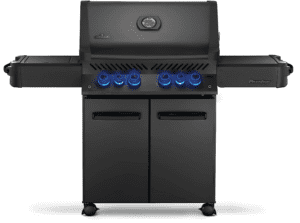Looking for a meat processing plant near you? You’re in luck! These facilities are where animals are turned into the cuts of meat we see on our plates. But did you know that there are niche meat processing plants that cater to specific markets, like organic or halal meat?
Local processors can also help farmers and ranchers by providing services like slaughtering and butchering. It’s important to ask questions about their practices and certifications when choosing a local meat processing plant.
For example, do they use humane slaughter methods? Are they certified by the USDA or another reputable organization? What parts of the animal do they process?
By finding a trustworthy local processing plant, you can ensure that the meat you’re consuming is high-quality and ethically sourced. So if you’re looking for a reliable processor, start asking those questions!
Benefits of Using Local Meat Processing Services
Looking for meat processing near you? Look no further than local meat processing services. Here are some benefits of choosing a local facility:
Fresher Meat
One of the biggest advantages of using a local meat processing service is that you can get fresher meat. When you buy from a grocery store, the meat may have been shipped from far away and could be several days old. But when you use a local facility, the meat is often processed within hours or days of being slaughtered.
Support Local Businesses
By choosing to use a local niche meat processing facility, you’re supporting small businesses in your community. This helps keep money in the area and supports jobs for people who live nearby.
Customizable Cuts and Packaging
When you use a local meat processor, you can often request specific cuts or packaging options that might not be available at larger stores. This allows for more customization and flexibility with your order.
Reduced Carbon Footprint
Choosing to use a local facility also means reducing your carbon footprint. By cutting down on transportation distances, there’s less fuel used and less pollution created.
Safer and More Hygienic Processing
Local facilities typically have smaller-scale operations compared to large industrial processors. This means there’s more attention paid to food safety and hygiene standards during processing.
USDA Approval and Regulations for Meat Processing Facilities
If you’re searching for “meat processing near me,” it’s important to understand the regulations set forth by the United States Department of Agriculture (USDA). The USDA is responsible for regulating all meat processing facilities in the US, ensuring that they meet strict standards and comply with federal regulations.
To receive USDA approval, meat processing facilities must adhere to specific guidelines regarding equipment, sanitation, labeling, and more. Inspectors from the USDA regularly visit these facilities to ensure that they are complying with these regulations.
One of the most important requirements set forth by the USDA is proper labeling of meat products. All meat products must be labeled with specific information, including the establishment number of the processing facility. This helps consumers know where their food is coming from and ensures that any issues or recalls can be traced back to a specific facility.
It’s crucial that meat processing facilities comply with these regulations as failure to do so can result in fines, suspension of operations, or even criminal charges. However, not all meat processors are subject to USDA regulation. Custom-exempt processing allows small-scale processors to operate outside of some federal regulations but still requires compliance with state and local laws.
it’s essential to look for one that has received USDA approval. This ensures that your food has been processed in accordance with strict federal guidelines and meets high safety standards.
Interactive Maps and State Resources for Finding Local Meat Processing Facilities
Looking for local meat processing facilities can be a daunting task, but state affiliates offer resources to make it easier. These resources provide information on meat processing facilities in your area, including price lists for processing wild game.
State Affiliates Offer Resources for Finding Local Meat Processing Facilities
State affiliates are a great resource. They often have extensive databases of facilities in the state and can provide information on their services, prices, and availability.
Interactive Maps Provide Information on Meat Processing Facilities in Your Area
Interactive maps are another useful tool for finding local meat processing facilities. With just a few clicks, you can search for facilities near your location and get detailed information about their services, hours of operation, and contact information.
State Resources Provide Price Lists for Processing Wild Game
If you’re looking to process wild game, state resources can provide valuable information on prices and regulations. Many states have specific guidelines for processing wild game that must be followed by processors. By using state resources, you can ensure that your game is processed safely and legally.
Immediate Slaughter Facilities and Certification Requirements
immediate slaughter facilities are crucial. These facilities ensure that the meat is fresh and safe for consumption. However, certification requirements must also be met to guarantee that the meat is of high quality.
Slaughter facilities must follow strict guidelines to maintain their certification. This includes proper handling and storage of meat to prevent contamination. It’s important to note that these guidelines are in place not only for the safety of consumers but also for the welfare of animals.
Certification requirements vary depending on the country or state regulations. For example, in the United States, slaughter facilities must adhere to standards set by the USDA Food Safety and Inspection Service (FSIS). These standards cover everything from sanitation practices to humane handling of animals.
To obtain certification, a facility must undergo an inspection process by a certified inspector. The inspector will check if all necessary requirements have been met before granting certification. It’s important to note that this process can take time and may require additional expenses.
Quality Control in Local Meat Processing Facilities
quality control is crucial for ensuring that the end product meets the required standards. Inspection of meat products is an essential step in local meat processing facilities to guarantee that the qualities of the meat are safe for consumption.
Importance of Quality Control
Proper quality control measures help to prevent contamination and ensure customer satisfaction. It involves monitoring every stage of the production process, including sourcing, handling, and packaging. By implementing rigorous quality control procedures, local meat processing facilities can maintain high standards and comply with regulations.
Inspection Process
Inspection of the meat products is a critical component of quality control in local meat processing facilities. The inspection process involves checking for any defects or abnormalities in the meat before it is packaged. This ensures that only high-quality products are delivered to customers.
Qualities Checked
The qualities checked during inspection include texture, color, odor, and flavor. These factors determine whether or not the product meets industry standards and is safe for consumption. Proper inspection helps detect any potential issues early on so they can be addressed before reaching consumers.
Supporting Small Businesses by Choosing Local Meat Processing Services
Are you looking for meat processing near you? choosing local butchers can help support small businesses in agriculture. Here are some reasons why:
Custom Processing Services
Local meat processors offer custom processing services that allow customers to get the exact cuts and products they need. Whether it’s pork, beef, or even deer, these butchers can provide a variety of options to suit your needs. By choosing these services, you can ensure that your food is tailored to your preferences.
Humane Treatment of Animals
Supporting local butchers also helps ensure humane treatment of animals during processing. These small businesses often prioritize animal welfare and use ethical practices when handling livestock. This means that the meat you purchase from them has been processed with care and respect for the animal.
Boosting Agriculture
Choosing local meat processing services also helps boost agriculture in your community. By supporting small businesses in this industry, you’re helping to keep farmers and ranchers in business. This not only benefits the economy but also helps maintain a sustainable food system.
So if you’re looking for high-quality meat products while supporting small businesses in agriculture, consider choosing local butcher shops for custom processing services. Not only will you get great-tasting cuts of meat tailored to your needs, but you’ll also be contributing to a more sustainable food system in your community.
Choosing the Best Local Meat Processing Facility
In conclusion, choosing a local meat processing facility has numerous benefits. Not only does it support small businesses in your community, but it also ensures that you are getting high-quality meat that is processed according to USDA regulations. By using interactive maps and state resources, you can easily find the nearest local meat processing facility that meets your needs.
It’s important to note that immediate slaughter facilities may require additional certification requirements, so be sure to do your research beforehand. Quality control is crucial in local meat processing facilities to ensure the safety and freshness of the meat.
Overall, by choosing a local meat processing facility near you, you are not only supporting your community but also ensuring that you are getting high-quality processed meat. So next time you’re in need of meat processing services, consider going local!


0 Comments